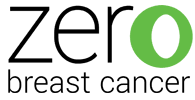Blog

- Details
This blog is the fourth in a series about an ongoing study that examines how environmental exposures to chemical mixtures may contribute to breast cancer risk (the first blog explains the study, the second explains non-targeted analysis, and the third explains DNA methylation). The study is led by Dr. Kimberly Badal from the University of California, San Francisco. In addition to collaborating with other researchers, Dr. Badal’s study prioritizes collaboration with breast cancer research advocates. The three advocates involved in this study are breast cancer survivors whose lived experience makes them uniquely suited to communicate the need for environmental breast cancer research and ensure that the research represents patient interests.
Zero Breast Cancer’s Lianna Hartmour had the opportunity to speak with advocates Vivian Lee, Susie Brain, and Diane Heditsian about why there is a need for advocate involvement in environmental breast cancer research. She also spoke with Dr. Badal to hear her perspective on how advocates inspired her research.

- Details
We’re pleased to announce that tickets are now available for our 2025 fundraising event to support Zero Breast Cancer’s work. Steps Toward Prevention: A seaside walk for Zero Breast Cancer will take place in Bolinas, CA at the Commonweal headquarters on Sunday, October 26th from 2-4pm PT.

- Details
In this third blog in our series exploring how chemical mixtures relate to breast cancer risk, we explain what DNA methylation is and how it is relevant to a groundbreaking new research study. (Read the first blog explaining the study background and the second blog explaining non-targeted analysis.)
The study is led by Dr. Kimberly Badal from the University of California, San Francisco, with help from Dr. Hannah Lui Park from University of California, Irvine and other researchers. It aims to find out which individual chemicals and chemical mixtures are linked to breast cancer. The study will give insight into how we can reduce exposure to chemicals to lower the risk of getting breast cancer. We interviewed Dr. Park about DNA methylation, the method she brings to the study.

- Details
Zero Breast Cancer (ZBC) at Collaborative for Health & Environment (CHE) offers breast cancer prevention and survivorship health and wellness programs, including a health and wellness coaching program. We also provide resources on breast cancer prevention for audiences of all ages — from five-year-old children through survivors.
For more than 28 years, ZBC has centered community perspectives in our program and resource development. To illustrate how this works, I’m going to explain the development of our bilingual Generations/Generaciones resources about the impact of endocrine disrupting chemicals (EDCs) across generations.

- Details
Introducing Ina®
The Intelligent Nutrition Assistant from Savor Health®
Ina®’s personalized clinically and contextually appropriate nutrition and symptom management interventions are available 24/7 “on demand” via SMS text to help patients with cancer and other chronic medical conditions stay on treatment, prevent and manage side effects, and feel strong throughout the cancer journey.

- Details
This blog is the second in a series about a new study that looks at how a woman’s exposure to chemical mixtures may increase the risk of breast cancer. (Read the first article here.) The study also explores whether women from different economic backgrounds experience different levels of chemical exposure.
This study is led by Dr. Kimberly Badal from the University of California, San Francisco, with help from Dr. Douglas Walker from Emory University and other researchers. It aims to find out which individual chemicals and mixtures are linked to breast cancer. It will give insight into how we can reduce exposure to chemicals to lower the risk of getting breast cancer. We interviewed Dr. Walker about non-targeted analysis, the method he brings to the study that will enable these complex research questions to be answered.
- 2024 Impact
- A Groundbreaking Study on Chemical Mixtures and Breast Cancer Risk
- Zero Breast Cancer joins Collaborative for Heath & Environment
- A Black Woman's Journey into Understanding Breast Cancer Disparities Blog Series - Part 2
- Resilient Me Health & Wellness Coaching for Survivors
- App Recommendation: Yuka

